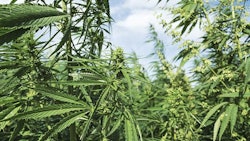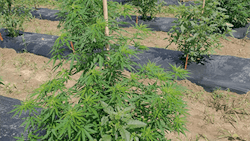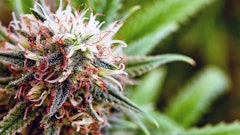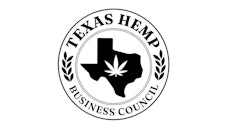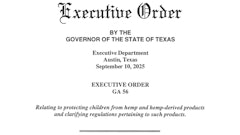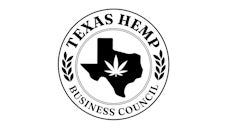A group of lawyers, research scientists, communications, and brand development professionals established the Hemp and Cannabinoid Science Institute this past August to facilitate the development of ingestible and topical hemp-derived cannabidiol (CBD) products. Underlying this effort is a push to comply with existing federal regulatory health and safety standards, providing the predictability to encourage rapid market growth.
The Institute’s founders, including Mary Wagner, president of food science consulting firm MK Wagner and Associates, said the Institute’s goal, in part, is to help industry participants avoid mistakes that have hindered the new hemp market.
Avoiding Previous Mistakes
For example, Wagner argues that cultivation and investment have outpaced the market due to a lack of established research and regulatory standards. Many people “put the cart before the horse” by trying to build a market without a proper foundation in science and agency approval, Wagner says. “There’s this lack of science, holes everywhere that’s causing this wild west environment,” she adds.
The Institute addresses this problem by working with the Food and Drug Administration (FDA), the U.S. Department of Agriculture, and other regulatory bodies to meet their standards. “The end goal for us is to get the FDA over the line” in approving hemp-infused consumer packaged goods (CPG), including food, beverages, nutraceuticals, and topicals, Wagner says.
“The plan for success will be much easier if we work with the FDA,” added Scott Riefler, founding member and the chief science officer of SōRSE Technology, a food technology company.
Not only do the Institute’s tactics ease the regulatory path, but they also help avoid other pitfalls, according to Wagner, Riefler, and Joshua Ashby, Institute member and cannabis law expert at Fox Rothschild LLP. “You don’t want to make this a political decision,” Wagner notes, or “get into a legal battle,” Ashby added.
The benefit of the Institute’s strategy is that it will help ensure a profitable market that will benefit farmers. “It’s a wonderful outlet market for the hemp farmers,” Riefler says. “These are high-value materials. It goes without saying that the hemp plant, the hemp crop, is worth a heck of a lot more for its cannabinoid content than for its fiber content.”
Wagner says the Institute is already communicating with various federal officials, including Frank Yiannas, the FDA’s deputy commissioner for Food Policy and Response, to understand what those officials need to approve CBD products.
FDA Press Officer Nathan Arnold responded to Hemp Grower that the agency, including Lowell Schiller, Principal Associate Commissioner for Policy, did have a listening session with the Institute on June 15.
As for the level of engagement beyond the meeting, Arnold provided the following statement,
“As part of our work, the FDA continues to explore potential pathways for various types of CBD products to be lawfully marketed. An important component of this work is obtaining and evaluating information to address outstanding questions related to CBD products that will inform our consideration of potential regulatory frameworks for CBD while maintaining the FDA’s rigorous public health standards. While we can’t comment on any specific meeting, we can confirm that FDA officials continue to meet with associations and other stakeholders who can share their perspectives on CBD products.”
Credibility and Experience
The Institute believes that their members’ background as scientists and consultants with decades-long relationships with relevant regulatory agencies provides credibility that previous efforts may not have had.
Wagner and other members have decades spent in food and beverage research and development, including undertaking numerous FDA approvals. These members include such well-known experts as Peter Barton Hutt, senior counsel for Covington & Burling, LLP, a former chief counsel for the FDA, and food and drug law professor at Harvard University.
Cooperative Effort
The Hemp and Cannabinoid Science Institute is a nonprofit that pools resources using annual membership fees and contributions so that it is more affordable for companies to obtain necessary product research. The studies will not be proprietary, but instead will be available to anyone who wants the information, Wagner says.
This approach will benefit everyone by expanding the overall market, she adds. Pooling the funds “will raise the tide for everybody.”
These funds include the requirement for annual contributions to join the Institute’s management board and science council. For example, a seat on the board for two years requires $1 million, and it is $100,000 for a two-year term on the science council. Individuals can also join the Institute by paying annual membership dues. These dues range from $100,000 to $500.
Regarding the fees and dues, Riefler explains that “the nature of our work, such as developing unified nomenclature/standards of identity, test method development, toxicological studies, drafting or regulatory petitions, evolving plant genetics to name a few are expensive and often beyond the reach of any one organization. As we are not sponsored by a parent organization, we seek industry funding. It is customary to include some level of participation for major donors.”
He added that donations are not required to engage with the Institute. “Our Council is open to all stakeholders and those with interest, not just those donating.”
The Work Ahead
The Institute has already started its work, preparing a gap analysis for the FDA to determine where the science for CBD products falls short. Such an understanding is essential to get product approval and will include safety data, such as toxicity standards, Wagner says. This research is being undertaken to secure an FDA designation of Generally Recognized As Safe (GRAS) for packaged, ingestible CBD products.
Products that meet the GRAS standard under the Federal Food, Drug, and Cosmetic Act are not subject to premarket review and approval. According to the Act, products meeting this standard need to be “adequately shown to be safe under the conditions of its intended use.”
Another priority is addressing agency concerns about THC levels. Institute members believe that the current 0.3% THC standard is too high for ingestible products. The Institute wants to address this issue, in part, by focusing on plant genetics. The goal, Riefler says, is to find out how to modify hemp to reduce THC down to trace levels genetically.












